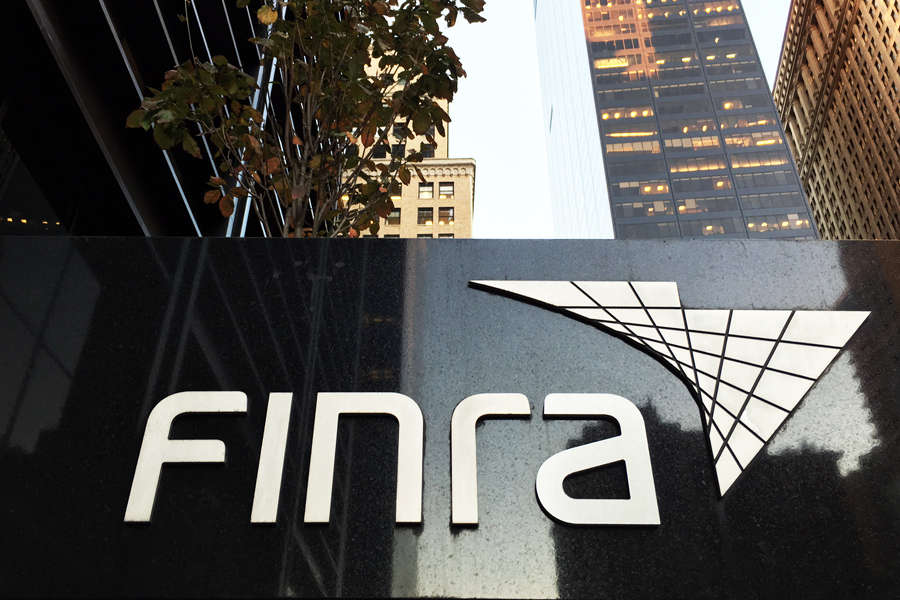The Financial Industry Regulatory Authority Inc. will not raise member fees for the sixth straight year, but depending how much it raises through fines and market performance, the broker-dealer regulator could draw up to $185 million from its cash reserves this year.
That aspect of the
2019 Finra budget summary released Thursday was a sticking point to some critics of the strategy.
While Finra members might be able to appreciate the fee news, Todd Cipperman, principal at Cipperman Compliance Services, said members should be wary of an increased focus on
revenue through fines.
The potential budget shortfall of $185.8 million, up from $138.1 million a year ago, is "problematic for members," Mr. Cipperman said.
"Finra has a significant financial incentive to bring enforcement cases and impose fines in order to close its budget shortfall," he said. "In 2017, Finra assessed over $170 million in fines, an 82% increase over the prior year. Finra needed these fines to close a significant funding gap."
Finra's 2018 report is not yet final, but in the 2019 summary it cited the example of a 2017 potential reserve reliance of $142.8 million, that ultimately resulted in a net income of $41.6 million for the period. A Finra spokesman confirmed that the potential reserve reliance line item in the budget is a projected budget shortfall that assumes no change in the value of Finra's $1.7 billion cash reserve, the bulk of which can be traced to the
2006 sale of Nasdaq.
Adam Gana, attorney at Gana Weinstein, disputes the claim that Finra would be seeking fines to balance its nearly $1 billion budget.
"Finra should be motivated to bring enforcement proceedings based on the actions of its membership and its stated goal of investor protection," he said. "I disagree that there is any evidence that Finra is motivated to act based on its own pecuniary gain. Sounds like nonsense."
But Daniel Nathan, partner at Orrick, Herrington & Sutcliffe and a former Finra vice president and director of regional enforcement, also cited the potential incentive to rely on fines for revenue.
"There appears to be some inconsistency," he said. "On one hand, they say they are excluding fine monies from budgetary needs, but on the other hand Finra's stated guiding principles are that the fines will be used to promote compliance and improve markets. It does appear to create an incentive to collect fines, notwithstanding their claims otherwise."
Mr. Nathan's perspective is in reference to the budget summary text detailing that it "continues to reflect the intentionally conservative methodology we adopted last year, which assumes there are no fine monies available to support capital initiatives, and that there are not investment gains or losses on our financial reserves."
Finra's budget shows projected 2019 operating expenses of $922.5 million, up from $889.6 million last year, and continuing an annual rate of increase since 2015 of 1.6%.
The 3.7% 2019 increase is attributed to compensation- and technology-related expenses, the report states.
Operating revenues, projected at $846.9 million in 2019, have remained relatively steady; they were at $850.5 million in 2014.
Finra derives nearly half of its revenues from industry fees that are assessed according to firms' gross revenue and trading volume, as well as firms' total number of registered representatives.







